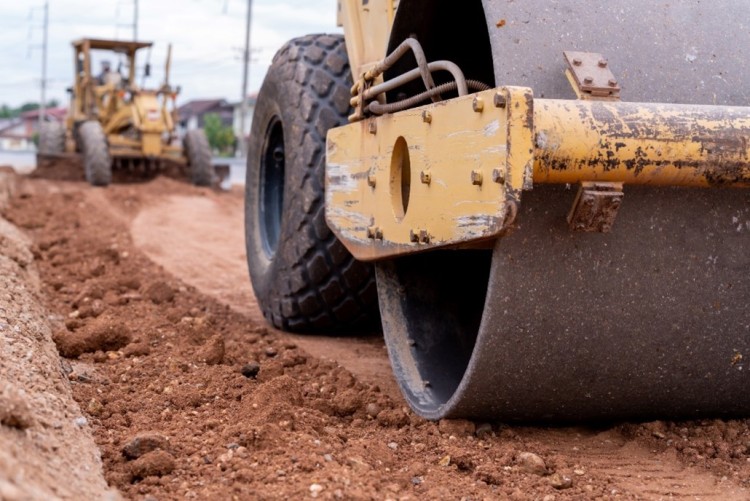Construction equipment is the lifeblood of any construction project, providing the necessary tools and machinery to carry out tasks efficiently and effectively. In this comprehensive guide, we will delve into the diverse world of construction equipment, exploring different types, their specific uses, and the remarkable benefits they bring to the construction industry.
Excavators
These versatile and powerful machines play a vital role in construction projects. With their hydraulic systems, articulated arms, and bucket attachments, excavators excel at tasks such as digging, trenching, and earthmoving. These machines are capable of tackling a wide range of construction activities, including site preparation, foundation digging, and material handling. The benefits of using excavators in construction are manifold. They enhance efficiency by swiftly moving earth and debris, saving valuable time and manpower. Excavators also offer precise control and accuracy, enabling construction professionals to achieve the desired levels and shapes for their projects.
Bulldozers
Dozers, with their iconic wide blades and robust frames, are renowned for their exceptional pushing and grading capabilities. Equipped with immense power and stability, these machines can handle heavy materials, clear land, and reshape terrains. Bulldozers find applications in a multitude of construction operations, from road construction and land clearing to building site preparation. One of the key advantages of using bulldozers is their ability to push substantial volumes of soil, rocks, or debris efficiently, greatly reducing the need for manual labor. Furthermore, their versatility and adaptability make them indispensable in creating level surfaces, establishing proper drainage, and shaping landscapes according to construction requirements.
Cranes
Cranes are synonymous with construction, offering unparalleled lifting and hoisting capabilities. Whether it’s erecting structures, maneuvering heavy components, or transporting materials to elevated areas, cranes are essential machines in construction operations. With various types available, such as tower cranes, mobile cranes, and crawler cranes, each brings unique advantages to the table. Cranes significantly enhance productivity on construction sites by enabling the lifting of heavy loads that would be otherwise impossible for manual labor alone. Moreover, their reach and maneuverability allow for precise placement, ensuring accuracy and efficiency in construction projects.
Forklifts
They are truly indispensable equipment in the construction industry, providing efficient and safe material handling and logistics solutions. With their versatile forks and hydraulic lifting mechanisms, forklifts excel at lifting and transporting heavy materials, equipment, and supplies across construction sites. They find application in a wide range of tasks, including loading and unloading trucks, moving materials within job sites, and even moving trailers with the use of a forklift trailer hitch. The benefits of forklifts in construction are numerous. They significantly improve efficiency by reducing manual labor and expediting material movement. Forklifts also contribute to a safer work environment by minimizing the risk of manual lifting injuries and providing better control over material handling processes.
Loaders
Loaders are indispensable machines for material handling in construction. They come in various types, such as wheel loaders and skid steer loaders, and are designed for versatility and maneuverability. Loaders excel at tasks such as loading trucks, moving and stockpiling materials, and clearing construction sites. Their front-mounted buckets or forks enable efficient and precise material handling, contributing to increased productivity on construction sites. With their robust build and power, loaders navigate various terrains and offer exceptional lifting and carrying capacities, making them invaluable assets in construction operations.
Dump Trucks
Dump trucks are workhorses of construction sites, designed to transport and unload materials with efficiency and precision. With their robust chassis, hydraulically operated beds, and varying load capacities, dump trucks excel at hauling construction debris, aggregates, soil, and other materials. They are essential for large-scale construction projects, such as road construction, infrastructure development, and mining operations. Dump trucks offer significant benefits in construction. They enable efficient material transportation, reducing the need for manual labor-intensive processes. Moreover, their ability to unload materials quickly and precisely enhances productivity on construction sites, ensuring a smooth flow of operations.
Concrete Mixers
Concrete mixers are vital equipment in construction, ensuring the consistent and efficient production of quality concrete. With various types available, such as drum mixers and volumetric mixers, they play a crucial role in mixing cement, aggregates, water, and additives to create the desired concrete consistency. Concrete mixers find application in a wide range of construction projects, from building foundations and roads to structural elements and decorative features. The benefits of using concrete mixers are manifold. They provide precise control over mix proportions, ensuring uniformity and strength in the concrete produced. Concrete mixers also streamline the concrete production process, enhancing efficiency and productivity on construction sites.
Scaffolding
Scaffolding is an integral part of construction, providing essential support and access for workers at various elevations. Composed of platforms, frames, and braces, scaffolding systems offer a safe and stable structure for workers to perform tasks such as painting, building maintenance, and installation of exterior components. Scaffolding is widely used in construction projects ranging from low-rise buildings to skyscrapers. The benefits of scaffolding are significant. It provides a secure working platform, enhancing worker safety and productivity. Additionally, scaffolding allows for efficient movement and access to different areas of a construction site, facilitating smoother workflow and construction progress.
Compactors
These are essential machines used to achieve stable and durable surfaces in construction projects. Different types are available, such as plate compactors and roller compactors, they play a crucial role in compacting soil, asphalt, and other materials. Compactors find application in road construction, foundation compaction, and soil stabilization. The benefits of using compactors in construction are notable. They ensure optimum compaction density, minimizing the risk of settling and improving the load-bearing capacity of constructed surfaces. Compactors also contribute to the longevity of roads, foundations, and structures, providing a solid and reliable base.
Takeaway
Construction equipment is the backbone of the construction industry, enabling efficient and effective completion of tasks. Excavators, bulldozers, cranes, forklifts, loaders, dump trucks, concrete mixers, scaffolding, compactors, and various other machines each play a crucial role in different construction operations. By utilizing the appropriate equipment, construction professionals can enhance productivity, improve safety, and achieve high-quality results in their projects. The comprehensive guide presented here offers insights into the types, uses, and benefits of construction equipment, empowering construction professionals to make informed decisions and optimize their construction operations




